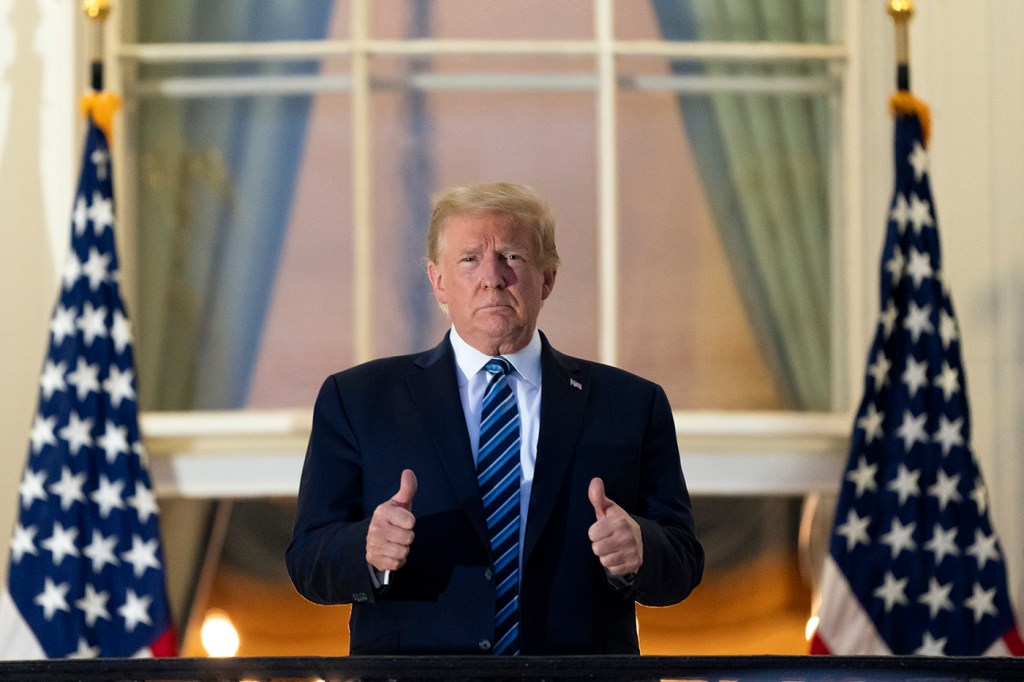Does the public have a right to know the state of President Donald Trump’s COVID-19 diagnosis?

As President Donald Trump downplays the risk of his COVID-19 diagnosis , evolving information about his condition continues to raise more questions than it answers. Chief among them: Does the public have a right to know the state of the president’s health?

Wendy Parmet, University Distinguished Professor of law and director of Northeastern’s Center for Health Policy and Law, says the public should know the state of the president’s COVID-19 diagnosis, especially when other people’s health is involved. Photo by Mary Knox Merrill/Northeastern University
The short answer? Yes, says Wendy Parmet, university distinguished professor of law and director of Northeastern’s Center for Health Policy and Law. Especially when other people’s health is involved.
“To be so cavalier about this, it sets a bad example,” Parmet says of President Trump, who returned to the White House from Walter Reed National Military Medical Center on Monday night and told the public, “Don’t be afraid of” the virus.
“Just because he might recover doesn’t mean everyone is going to recover,” Parmet says. “Telling people not to worry about the pandemic is dangerous.”
In the past, some presidents’ medical conditions weren’t fully disclosed to the public. John F. Kennedy’s Addison’s disease and Franklin D. Roosevelt’s partial paralysis were carefully hidden from view, and largely ignored by the media. But Parmet says these cases differ from President Trump’s in one important way—they weren’t communicable diseases contracted during a pandemic.
“Was Addison’s disease affecting JFK’s cognitive performance? Maybe, but that’s another matter entirely. The point is, it wasn’t contagious. He wasn’t putting other people at direct risk,” Parmet says.
The president’s seemingly-nonchalant attitude toward his diagnosis — he briefly left Walter Reed over the weekend to drive past supporters gathered outside — could negatively affect COVID-19 public health messaging, Parmet says. It could also have a direct impact on the health of those around him, she says. More than a dozen people who have come in contact with the president in the past week have tested positive for the disease.
With the possibility that these cases could be linked to President Trump, would he ever be legally obligated to disclose the timeline of his COVID-19 diagnosis?
“Certainly if he knew he was infected and disregarded the wellbeing of others then there’s a possibility that this could be a civil liability suit,” Parmet says. A campaign fundraising event attended by President Trump last week is under investigation after information surfaced that one of the president’s top aides, Hope Hicks, had tested positive for COVID-19 prior to the event.
Presidents can be sued, Parmet explains. But an individual would need to prove that the illness was a result of the president’s actions, which is easier said than done, especially since contact tracing is not legally enforced in the United States.
“Does every detail about the president’s health need to be made public? No,” Parmet says. “But no one is forced to be president. You put yourself out there as the most capable of leading a country, and for someone who choses that path to claim privacy is somewhat disingenuous.”
“We don’t get helicopter rides to the hospital. We don’t have access to the latest experimental drugs,” she says. “These privileges come with expectations.”
For media inquiries, please contact media@northeastern.edu.





